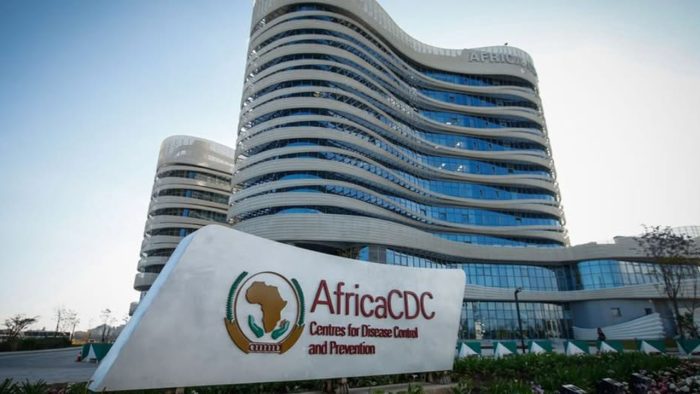
DR Congo receives first shipment of mpox vaccines
- Health SecurityInternational News
- No Comment
- 229

Authorities aim to start vaccinations in October but face logistical challenges as doses need to be kept cold.
The Democratic Republic of the Congo has received its first batch of mpox vaccines, which health authorities hope will help curb an outbreak that has prompted the United Nations to declare a global public health emergency.
The Central African country of about 100 million people is at the epicentre of an mpox outbreak that the World Health Organization (WHO) declared a global public health emergency last month.
A plane carrying vaccine doses donated by the European Union touched down in the capital Kinshasa around 1pm local time (12:00 GMT), the Reuters news agency reported.
Congo’s Health Minister Samuel Roger Kamba Mulamba told reporters the newly arrived vaccine had already proved its worth in the United States and would be rolled out to adults in DR Congo.
“We know which provinces are heavily affected, notably Equateur and South Kivu … The idea is to contain the virus as quickly as possible,” he added.
The vaccines come from the Danish pharmaceutical laboratory Bavarian Nordic. It is the only vaccine approved in Europe and the United States and is only intended for adults. Trials are currently being conducted for potential use on children over the age of 12.
The first delivery amounts to 99,000 doses and a further delivery on Saturday will take the total to 200,000 doses, said Laurent Muschel, the head of the EU Health Emergency Preparedness and Response Authority (HERA).
Overall, Europe aims to deliver 566,000 doses to wherever needs are greatest in the region, Muschel told Reuters.
“It shows the solidarity between the European Union with Africa and also our capacity to react quickly,” he added.
More than 17,500 mpox cases and 629 deaths have been reported in the DRC since the start of the year, according to the WHO. Both strains – clade 1b and clade 1a – are present in the country.
The WHO also declared an emergency on August 14 because of a surge in cases of the new clade 1b strain.
Lindis Hurum from Doctors without Borders in Goma, in eastern Congo, told Al Jazeera that the new variant seems to be spreading more easily between humans.
“Children under 15 are at risk if they contract the virus and could also die from the virus….As of now we don’t really know much about the situation. Children, pregnant women and people living with HIV for instance, are people we are specifically worried about,” Hurum said.
Cris Kacita, head of the DR Congo’s mpox outbreak response, said the country hoped to start the first wave of vaccination on October 8 if the vaccines were delivered this week.
But the country will face a major logistical challenge in a territory four times the size of France with poor roads and infrastructure and erratic power supplies.
The Danish vaccine must also be stored in special conditions, “at minus 20°C [minus 4°F], the temperature of a freezer,” Muschel said.
Mpox has been reported in at least 13 African countries, according to an August 27 update from the Africa Centres for Disease Control and Prevention (Africa CDC). On Wednesday, Guinea said it had recorded its first confirmed case of the disease and other countries have also promised to send vaccine doses to African nations.
“Based on the number of cases, the next country [for deliveries] should be Burundi, but the country’s medical agency must authorise it,” Muschel said.
The virus has also been detected in Pakistan, the Philippines, Sweden and Thailand.
“I think this virus is specifically of concern in DRC where health systems are weaker. I don’t think the rest of the world should worry too much. It is possible to contain the virus in societies where we have access to strong health systems,” Hurum told Al Jazeera.
Formerly called monkeypox, the virus was discovered in 1958 in Denmark, in monkeys kept for research. It was first discovered in humans in 1970.
Mpox is caused by a virus transmitted to humans by infected animals but can also be passed from human to human through close physical contact.
The disease causes fever, muscular aches and large boil-like skin lesions filled with pus.
By Aljazeera
https://www.aljazeera.com/news/2024/9/5/dr-congo-expects-first-shipment-of-mpox-vaccines-to-arrive-on-thursday





